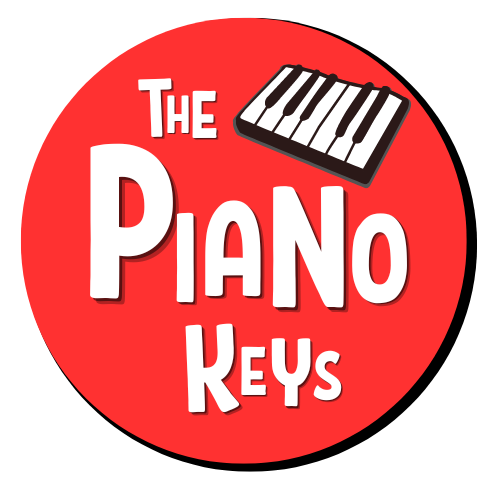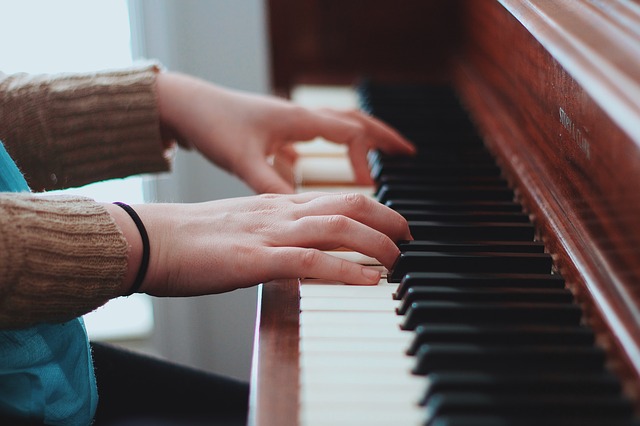So you’ve decided to learn (or come back to learning) to play the piano. But first, you need something to play on! With so many options, how do you decide which instrument to get? It can seem a bit overwhelming. But don’t worry, it’s really not as complicated as it seems. There are just a few basic facts you need to know. Let’s take a look.
Keyboard, Digital Piano, or Acoustic Piano?
There are basically three “piano keyboard” type instruments, each with its own advantages and challenges. Here’s a quick overview.
Keyboards
Keyboards can range from small, inexpensive, toy-like instruments you can find at your local discount super-store to workstations loaded with songwriting and arranging tools, costing several thousand dollars. For our purposes, we will focus on the keyboards that are meant strictly for “piano playing” in the home.
These keyboards are budget-friendly and have 54 or 61 keys (acoustic pianos have a standard of 88 keys). They can produce different types of sounds, and have lots of features like rhythm accompaniments that can be adjusted for tempo and style, chord functions that help flesh out the music being played, and even the ability to record your own playing! As toys, they can be lots of fun.
But, for actually learning to play? Not so much.
For one thing, many of them don’t offer touch control, so no matter how lightly or heavily you play the keys, the level of sound doesn’t change.
These keyboards also don’t offer weighted keys, which means that the “feel” of playing them is nothing like the feel of a piano.
Pianists need the weighted feel of keys to provide realistic resistance, so that our hands and fingers can develop strength, speed, and agility. In much the same way as we use weights to work out our muscles at the gym, weighted keys give our hands and fingers the right environment to develop good piano technique, which will allow us to play the songs and pieces we want to play.
Many times parents tell me that they’d like to start their children on these inexpensive keyboards to see if the children like playing before investing in more higher-end instruments.
This seems like a logical choice, but I really don’t recommend it and here’s why.
Without the sound and touch-responsiveness of a weighted-key keyboard, the piano student doesn’t have the chance to actually experience what it’s like to make music on a piano. Learning to produce different levels of sound, like loud and soft, and feeling the weight of the keys under the fingers, are some of the basics that piano students need to experience from the very beginning of learning to play. Since these things can’t be done on the inexpensive “beginner” keyboards, these keyboards are all but useless for determining whether or not a child will be a good candidate for longer-term piano studies.
Also, since these keyboards don’t allow for the development of technique, the student will actually feel very discouraged when trying to play a weighted-keys keyboard or an acoustic piano at their lessons. They just won’t have the strength to do it. Just as importantly, not having a practice instrument that can produce nuances of sound like loud and soft, these students will have a very hard time developing the ability to play with musical expression.
Bottom line? Unless you’re getting one of these keyboards as an add-on or a toy, they are a waste of your finances and can actually keep a budding pianist from reaching their true potential.
Digital Pianos
Digital pianos are designed to have a touch and sound that is as close as possible to acoustic pianos. There are lots of brands and styles to choose from, so ultimately, your choice will depend on your budget.
Most digital pianos have semi-weighted or weighted keys, full size 88-key keyboards, and come with several onboard sounds including strings, organ, grand piano, and harpsichord. They have features like built-in metronomes, transposing keyboards, and adjustable touch-sensitivity.
And even though many models come with speakers built right into the body of the keyboard, all of them allow you to plug in additional amplifiers for boosting the sound. On the other hand, if you want privacy when you practice (or your neighbors or housemates are tired of hearing you play your Hanon exercises for the 473rd time this week), you can plug in a great pair of headphones and you’re all set. Add on a high-quality sustain pedal to add just the right touch to your favorite Chopin nocturne or Elton John ballad.
Some digital pianos come with cabinets that look just like upright acoustic pianos, while others need to be placed on a sturdy keyboard stand that won’t wobble.
Prices for digital pianos can range from under $500 to several thousand dollars.
So how do you choose one? My favorite brands are Yamaha, Roland, and Nord. Surprisingly, Casio has really stepped up their game in recent years and offer some great options at low prices. You really can’t go wrong with any of these brands. I’m currently playing a Yamaha P-125 and I’m absolutely thrilled with it.
While it’s true that a digital piano will never feel or sound exactly like an acoustic piano, there are actually great reasons for choosing digital over acoustic.
For one thing, you never have to worry about maintaining digital pianos. No twice yearly tunings means that you’ll get to keep more of your money. Digital pianos also generally take up less space than acoustic pianos, and are much easier to move. Going to a party and want to take your piano skills with you? No problem, throw your digital piano in the back seat of your car, and you’re off. And did I mention that you can plug in your headphones and play to your heart’s content, while someone else binges on the latest Netflix series in the same room? You can’t do that with a traditional piano.
Acoustic Pianos
Ok, I’ll be honest here. Given the choice between playing a digital piano and a gorgeous, well-maintained Steinway grand, I’ll take that Steinway every time. Nothing compares to the feel of the keys moving levers, the hammers striking strings, the rich sound reverberating through the wooden body of an acoustic piano.
But let’s be real – very few of us have the finances or the space for the piano of our musical dreams. At best, we may have inherited Aunt Margaret’s rusty old spinet with several dead keys that’s been shuffled from cousin to cousin in various rounds of downsizing. Even if we’ve been fortunate enough to get a decent acoustic piano, without regular tuning and maintenance, it won’t sound or feel good for very long. And if you like to record your playing (or you know, have a YouTube channel where you post tutorials), getting a decent recording of an acoustic piano is an entire art in itself.
Planning to move? You’d better be ready to spend a small fortune to get that baby safely to its new home. Everyone gathering in the back yard for a barbeque and you want to flex your piano skills during the obligatory Jimmy Buffett Margaritaville sing-along? Too bad, your piano’s all the way in the living room at the front of the house.
So, what I’m saying here is – yes, acoustic pianos are ideal for certain situations, like concerts, professional recordings, or high-level practicing, but they do have some significant drawbacks.
If you do want to buy an acoustic piano, and not just as a fancy decorative piece, make sure that you like the way it sounds and feels to play. If you’re not familiar with what a good piano is supposed to sound and feel like, find someone who really knows how to play and take them piano shopping with you. Then have a piano tech check out the one you want to buy to rule out any hidden issues that are going to cost you down the line. An acoustic piano is a significant investment, so it’s best to take your time and choose wisely.
Questions? Let me know by leaving a comment!
Keep practicing, have fun, and I’ll see you soon!
Marina


Merci Marina pour tous tes conseils .
Personnellement, j’ai commandé un piano numérique chez Yamaha, il arrivera au mois de mai ou juin au plus tard ..
Actuellement, je joue sur un piano numérique de la marque Dynatone , c’est coréen